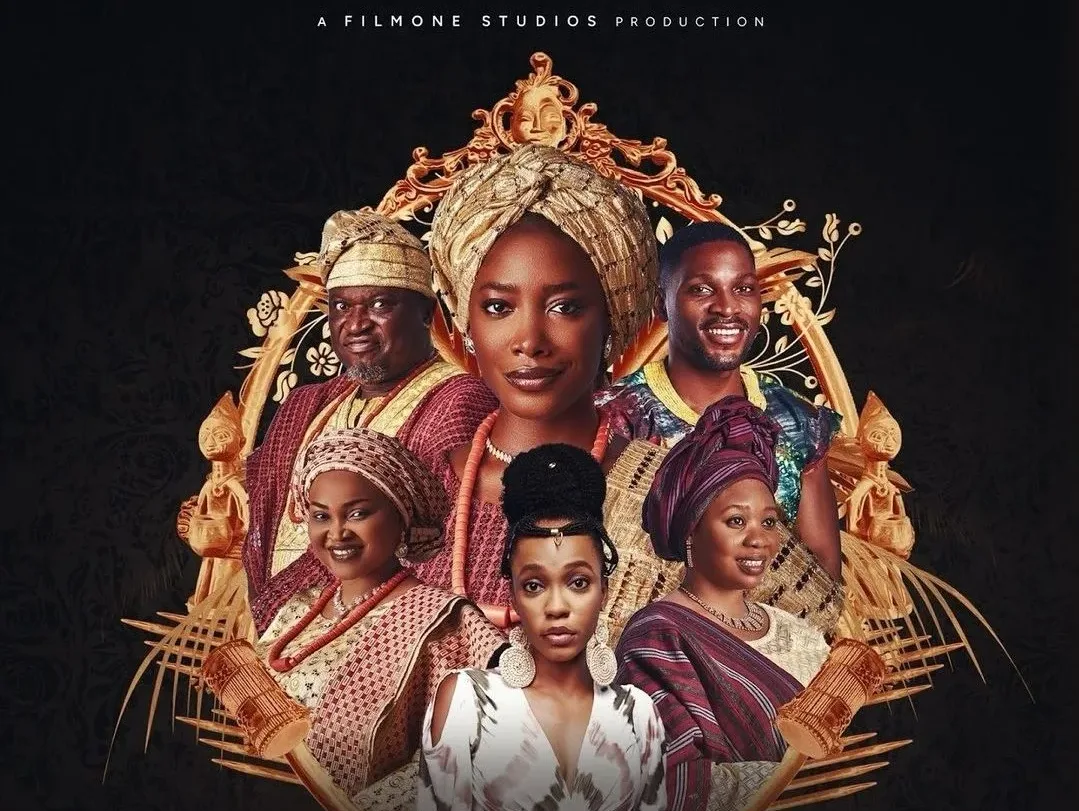There are tepid points, dialogues, and scenes in Farmer’s Bride that hinders a completely stable cinematic moment.
By Seyi Lasisi
Jack’enneth Opukeme, the writer and co-director of Farmer’s Bride has been making some steady and assured career moves. It’s public knowledge that Opukeme, a graduate of Theatre Art from the University of Calabar, Nigeria, started his odyssey into the Nigerian film industry by interning at FilmOne Entertainment. From this position, he leaped into creating Funke Akindele’s Battle on Buka Street (2022).
In 2023, Opukeme created Adire, FilmOne Entertainment’s first original film. Given the commercial success of these projects, it’s fair to say that his career has encountered opulence in its early stages. Beyond the financial success, after watching Farmer’s Bride—a film he co-directed with Adebayo Tijani—it’s evident that Opukeme possesses a talent for crafting character-driven narratives.
Set in a sleepy town, Farmer’s Bride follows Funmi (Gbubemi Ejeye), a young, beautiful and ambitious woman compelled into early marriage by her mother (Wumi Toriola) to Odun (Femi Branch), an elderly and wealthy farmer. As is commonplace in such arranged marriages, once hefty dowry exchange hands, the girl’s feelings and opinions are disregarded.
From then on, she is sanctioned, for eternity, to live a performative life for her parents, husband and society. Sadly, her ambition, desires and dreams are shoved under; never to suffice again. This remains Funmi’s reality until she encounters Femi (Tobi Bakre), Odun’s late brother’s son. Upon arriving at Odun’s home, Funmi openly expresses her disdain for the man she was forced to marry and longs for her freedom. Central to the story is Morenike (Mercy Aigbe), Odun’s childhood love interest and the widow of his late brother.

Farmer’s Bride stresses Odun’s good and accommodating traits. He is doted upon by the society for his philanthropic acts and is referred to as “our father”. His house serves as a sanctuary for the community, where food and stories are shared without restraint. Despite Odun’s hope that Funmi, his new bride, will bring him comfort, she harbours growing resentment and ill thoughts towards him. As Funmi and Femi begin a clandestine affair, the film, which starts with a romantic flair, takes a turn into thriller, and possibly, horror.
Obviously, the film’s cinematography calls attention to itself. Admirably executed by Emmanuel Igbekele, the film is stuffed with watchable and laudable camera choices. For a film that often revolves around Odun and Funmi’s bedroom, Igbekele, by taking well-thought-out creative choices, shoots the bedroom from different angles and perspectives. This reduces the monotony that can arise from filming in a single location for an extended period.

With Adeoluwa Owu’s Queen Lateefah (2024) and Adire (2023), Muyiwa Adesokun and Carmen Lilian Ike-Okoro’s Shina (2024) Kayode Kasum’s Ajosepo and Afamefuna (2023), under his filmography, one can assuredly say the cinematography is on the right track of commercial and mainstream appeal. Matching, in equal zest from the technical department, is the production design.
The hair and costume departments fulfill their creative duties with virtuoso skill. The combination of production design, costume, and make-up transforms Farmer’s Bride into a vibrant showcase of fashion and beauty. Crammed with interior shots, the technical department drowns away the viewer’s interest in obsessing about the exterior world. Quite frankly, the story is intimate, and deciding to shoot it in confined spaces aligns with the film’s driving idea.
Despite this, the script doesn’t confidently carry the story being told. There are tepid points, dialogues, and scenes in Farmer’s Bride that hinders a completely stable cinematic moment. Several questionable plot decisions arise, such as how Funmi’s transition from docility to hostility is not well embedded into the script, and Femi’s decision to forgo Western education for his assumed love of sculpting feels underdeveloped.

However, besides loitering uncladded around his workshop and using it for coitus rendezvous, nothing hints at his fondness for sculpting. There’s a lot of clutter in some of the actors’ spoken Yoruba. Bakre’s performance, much like the script, feels inconsistent. He lacks a strong sense of identity and agency in his portrayal, making his performance unbearable to watch.
Opukeme is slowly building his portfolio and one can only wish for what he’s going to do next. As Farmer’s Bride attracts commercial accolades, my interest is stacked in decoding what drives this writer’s creative vision. With only a few films to his name, his journey is just beginning, and the future is still bright.
Rating: 2.5/5
(Farmer’s Bride is currently showing in the cinema.)
Seyi Lasisi is a Nigerian creative with an obsessive interest in Nigerian and African films as an art form. His film criticism aspires to engage the subtle and obvious politics, sentiments, and opinions of the filmmaker to see how they align with reality. He tweets @SeyiVortex. Email: seyi.lasisi@afrocritik.com.



